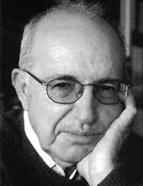

Focusing on a different period and seemingly heading in a different direction, Borges Coelho’s core interest remains unchanged: a deep fascination with topics suppressed by mainstream historiography. Through quantitative analysis of the Évora Inquisition's files, he paints a comprehensive picture of the institution, detailing its organizational structure, financial operations, mechanisms, and methods of operation. He also brings to light the voices of its victims — their cries and suffering — revealing their backgrounds, identities, and the prominence of the cristãos-novos (Jews converted to Christianity) within this persecuted group, alongside the targeting of individuals involved in trades and mercantile activities. Borges Coelho attributes the Inquisition's ongoing policy of persecution, terror and diaspora to the kingdom's cultural backwardness and economic underdevelopment.
In 1991, he completed the assessment for the academic title of agregado with a lecture on João de Barros, the historian of Asia. In 1993, he became a full professor, retiring in 1998 after delivering his final lecture on Lisbon in the first half of the 18th century, a subject that has always been particularly close to his heart.
Never ceasing to publish, he edited works related to his prolific academic career, including Quadros para uma Viagem a Portugal no Século XVI [Paintings for a Journey to Portugal in the 16th Century] in 1986; Tudo é mercadoria [Everything is a Commodity ] . Sobre o percurso e obra de João de Barros [About the Career and Work of João de Barros] in 1992, a biography of João de Barros in 1997, and new volumes of Questionar a História with essays published in 1994 and 1996. After retiring, he published História de Portugal [History of Portugal] in 2010, with the 5th volume released in 2015, fulfilling a long-held aspiration.
